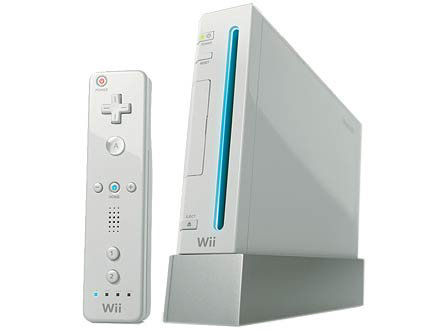As a veteran, do you know your franchise industry ABC’s?
A is for Autonomous — Why did you want to become a franchisee in the first place? More than likely it was because you wanted to be your own boss. Who doesn’t crave more autonomy at work?
B is for Boost a Hero — Finding funding isn’t always as easy as applying for a loan. Sometimes, applying for a loan isn’t easy in itself. Thankfully, Sprigster has created Boost a Hero, a crowd funding platform designed to help military veterans and their spouses raise capital to start their own franchises and businesses.
C is for Crowdfunding — Funding remains a challenge for all entrepreneurs, not just those who are hoping to open a franchise. New legislation is sure to help crowdfunding’s popularity as a way to raise capital for .
D is for Directories — As the franchise industry picks up speed in its recruitment of military veterans and franchisees, directories have become an invaluable resource for both franchises and veterans. Directories, like Veterans Franchise.com, provides potential franchisees with free information on franchises specifically recruiting or offering special incentives to military veterans choosing franchise ownership as their next career move. Some, like Franchise Clique, Franchise Buy and Veterans Franchise, have begun call-verifying leads as franchise sales and development teams field an increasing number of inquiries.
E is for Entrepreneur — Entrepreneur magazine has long celebrated franchising with its “Franchise 500”, their annual ranking of the industry’s top franchise concepts. The magazine also features a franchising section and often covers topics pertaining to the industry on its website.
F is for Fresh Coat Painters — Fresh Coat Painters is a low-cost, home-based and recession-resistant residential and commercial painting business that’s actively recruiting veterans.
G is for Growth — Growth despite economic challenges and uncertainty has become a hallmark of the franchise industry. Despite the woes experienced by many during the Great Recession, the franchise industry recovered well. The IFA expects the number of franchise establishments to grow by 1.4 percent in 2013!
H is for Helping Veterans Own Franchises Act of 2011 — Franchise small businesses find that veterans make great franchise owners because of the skills and experiences they have acquired through their military service. This legislation directly supports the mission of VetFran and would allow more veterans to become entrepreneurs through the ownership of a franchise business.
I is for IFA — The International Franchise Association (IFA) is the world’s largest and oldest organization representing franchising worldwide. It acts in the best interest of the franchising industry to promote, protect and enhance the franchise industry through policy, PR, and education.
J is for J Dog Junk Removal— This exciting franchise opportunity is only open to veteran, active duty and reserve personnel.
K is for King — Joel Libava, aka “The Franchise King”, writes a phenomenal blog on all aspects of the franchising industry. His posts range from evaluations of franchising concepts, helping potential franchisees and issues the industry faces.
L is for Little Caesars — Little Caesars is outpacing other pizza franchises when it comes to recruiting veterans. The franchise program provides qualified, honorably discharged veterans with the chance to become a Little Caesars franchisee when transitioning to civilian life.
M is for Military Franchises — Military veterans have been welcomed profusely to franchising by franchisors and the IFA alike. The push to hire military veterans has been facilitated by websites like Veterans Franchise.com, VetFran and crowd funding platforms like Boost a Hero.
N is for Nation’s Restaurant News — This magazine delivers breaking news about the $600 billion food industry, including franchises. Since 1967, NRN has been covering trends, operators, suppliers and major figures in all areas of the food service industry.
O is for Operations — As a franchisee, a large part of your day deals with the day-to-day operations that make a franchise unit run smoothly. Luckily, those with varying degrees of business experience can count on their franchisor counterparts to lead the way. After all, one of the best parts about franchising is the proven track record and support provided to each franchisee by its franchisor.
P is for Patriot Pilot Loan Initiative — Through the Patriot Express Pilot Loan Initiative the SBA has approved more than $500 million in low-interest small-business loans for veterans, reservists and their spouses since its creation in 2007.
Q is for Quick-Casual — If you didn’t catch our recent post on food costs and the franchising industry, you missed out on a short and sweet explanation of how food franchises continue to grow despite rising food, oil and transportation costs. The real winner in the food franchise category? Quick-casual restaurants, which are predicted to grow 1.7 percent in 2013, the third largest growth percentage according to the IFA. Also, quick-casual restaurant franchises make up two-thirds of all food related franchise establishments.
R is for Restaurants — When you think of franchising, golden arches and drive-thrus probably spring to mind first. It’s no wonder, considering food franchise establishments comprise 33 percent of all franchise establishments.
S is for Steve Caldeira — Stephen J. Caldeira is the President & CEO of the International Franchise Association. As the President and CEO, Caldeira works with the IFA’s board to set the course for the organization’s strategic priorities: policy, research, education, PR, and various development programs. Mr. Caldeira has 30 years of government relations, political communications, fundraising and professional development experience. Prior to his current position, Caldeira served as the Executive Vice President of Global Communications & Chief Public Affairs Officer for Dunkin’ Brands, Inc.
T is for Trillion — Yes, that’s trillion with a “T”! The franchise community represents $2.1 trillion of economic output just for the U.S. economy.
U is for U.S. Lawns — U.S. Lawns is aggressively recruiting former military personnel to become part of their franchise, which is part of a $50 billion industry.
V is for VetFran — The International Franchise Association’s VetFran initiative aims to help returning military service members access franchise opportunities through training, financial assistance, and industry support.
W is for Work — Despite the autonomy inherent in becoming a franchisee, there’s also a lot of hard work. Ask any small business owner and they’ll tell you how much they wish there were more than 24 hours in a day. As a veteran, you know all about hard work (can you say boot camp?) which is why you’re at the top of every franchise’s recruitment list.
X is for Xenophile — As far as we’re concerned, one of the very best things about the franchise industry is its acceptance of other cultures. Whether it’s a franchisee expanding outside of the U.S. or the birth of a new food franchise celebrating a cuisine that’s not quite mainstream yet, the franchise industry makes a point to bring “new” and “different” to the masses.
Y is for Yogurt — How many frozen yogurt places can you count driving through your city or town? The frozen yogurt craze, which hasn’t cooled yet, has been going strong for years. Though it’s not the oldest type of franchise concept in the industry, it’s certainly one that’s made other consider franchising as a viable means of making a living.
Z is for Zeal — It takes more than just energy and determination to be a successful franchisee. It takes passion and a zeal for each of the many components that make a business run successfully.








